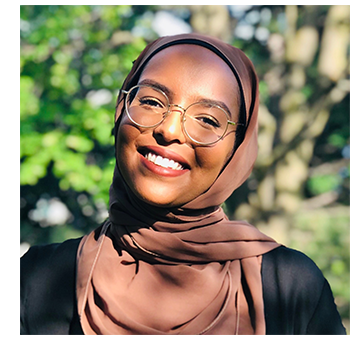Working with vulnerable clients at Downtown Legal Services

Nexus/Spring 2022
Law school… For students pursuing a legal education at the University of Toronto Faculty of Law, these two words likely bring to mind images of excessive amounts of caffeine, and ever-proliferating emails from administration. Some (perhaps those fortunate enough to have experienced law school free from the shackles of Zoom) may conjure up memories of networking, lounges, food and drink. For others, however, the law school experience is, in large part, best remembered by their time at Downtown Legal Services (DLS), the Faculty’s student-run legal clinic. I feel fortunate to fall in this latter camp.
This year marks DLS’s 50th anniversary! Since 1972 approximately more than 5,000 students have worked at U of T’s legal clinic with the hope of serving Toronto’s vulnerable and low-income communities.
Like many before me, I look back on my time at DLS as nothing short of transformative. I walked into DLS’s virtual doors (thank you, COVID) feeling entirely uneasy about my decision to pursue a legal education. The traditional law school curriculum, wherein we learn to understand the black letter law and apply it to various scenarios, had nearly extinguished my idealist (albeit sometimes naïve) passion for social change. Put simply – I found myself proverbially lost in the abstraction of it all.
This unease followed me into my first few weeks at DLS. I remember agonizing over the possibility that, despite my intention to reduce harm, I could reproduce it instead. What if this law thing just wasn’t for me? What if I said the wrong thing to a client? What if I failed to anticipate a client’s needs? Despite these anxieties, or perhaps because of them, I was resolved to do the work and to put my best foot forward.
By the time I walked out of DLS’s doors eight months later (take that—COVID), the unease had given way to a new-found sense of direction. I felt steadied by my supervising lawyers, peers and clients. Each played an integral and invaluable role in my learning.
From supervising lawyers Asiya Hirji and Prasanna Balasundaram, I witnessed what it means to push the boundaries of the law critically and creatively and to amplify the voices of those we serve.
From DLS’s Uyghur clients, I learned of true resilience, and what it means to wholly devote oneself to the pursuit of justice, despite seemingly insurmountable obstacles.
From our other clients, each at different stages of their immigration journey, I came to understand the limits of traditional legal interventions.
At every turn in my clinic journey, DLS’s supervising lawyers encouraged meaningful reflection. In the spirit of this practice, here are two reflections that I carry with me today:
First, many have asked me if working at DLS “brought law school to life”. It did not. The law in the books (black letter law) does not always mirror the law in application—particularly where it is applied to the racialized, the low-income, and those without status. The disjunction between the two can, at times, appear quite wide.
In more traditional learning environments, we may find ourselves invading, transforming and subjugating other people’s realities into concepts that make sense in the world of law.
At DLS, we are taught to avoid this ‘epistemological imperialism’ and to, instead, see our clients as more than “legal problems with legs.” Ultimately, this environment empowered me to call conventional legal wisdoms and unexamined assumptions into question. Everything was open for discussion.
Second, to work with community, you should orient yourself toward solidarity and humility.
Meaningful change comes about by working with people; it is rarely ever the result of working for people. Low-income communities constantly run into “sharp legal objects” and, as a result, hold expertise about the impact of the systems of oppression. Our role then, as advocates, is to work as allies who take our direction from community and individuals affected by injustices. We are not rescuers who swoop in to save the day.
Despite noble intentions, DLS reminded me to problematize performances of ‘moral outrage’ and to recognize that, like everything else, the role of an advocate is partly mediated by structures of power.
In law school, we set out to “think like lawyers.” I’m not totally sure what this entails. What I do know is that DLS gave me the real estate and the support to truly reflect on the type of advocate I hope to become.
Today, I say: happy 50th anniversary to DLS! Thank you for playing such a pivotal role in my law school journey. May there be many more anniversaries, and many more law students who walk through your doors.
Ikram Handulle is a second-year JD student at the Faculty of Law